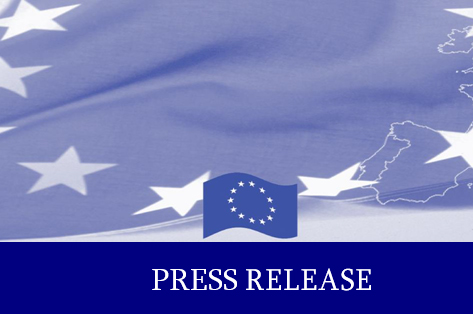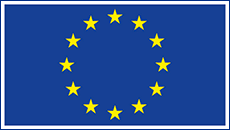
On April 17 and 18, the Government-Civil Society International Expert Conference: “RA Anti-Corruption Strategy under International Experience” was held in Yerevan.
The Conference was organised by jointly the Armenian Lawyers’ Association, the CSO Anti-Corruption Coalition of Armenia and the Ministry of Justice of the Republic of Armenia, in the framework of the “Commitment to Constructive Dialogue” project supported by the European Union, and in collaboration with United Nations Development Programme (UNDP) and the Centre for International Private Enterprises (CIPE).
H.E. Piotr Antoni Świtalski, Ambassador, Head of the European Union Delegation to Armenia, in his welcoming speech noted that there are visible results in Armenia in the fight against corruption, for which he congratulates. “For people like me, Armenia is another country today than it was a year ago. This is something that you can be proud of, and not just the government, because in my opinion, all Armenians have dreamt about it. However, as some cases related with the officials show, corruption risks are enduring. So be ready for a long struggle. The European Union is always ready to assist Armenia,” Piotr Świtalski said.
Mr. Tigran Khachikyan, Deputy Justice Minister on behalf of the Minister Artak Zeynalyan, thanked the partner organisations for the organisation of the conference and the participants of the event for their contribute to the elaboration and implementation of anti-corruption policy. “As you have seen, the determination to eradicate corruption is clearly reflected in the Government’s programme and it is important to combine strategic and institutional steps in combating corruption in a coordinated way, In the context of the above-mentioned, I attach great importance to the organisation and implementation of such conferences, as this is an additional platform to listen to the proposals and concerns of civil society, the experience of international experts and the opinions of the state bodies,” Tigran Khachikyan said.
Mr. Artur Davtyan, the RA Prosecutor General, mentioned in his speech that the results of the criminal-justice fight against corruption in Armenia were unprecedented in the history of the Third Republic of Armenia. “It is difficult to overestimate the significance of the conference, which is conditioned by the fact that in the government-civil society format, with the involvement of international experts, with the involvement of international experts, the priorities of the strategically important anti-corruption strategy of the Republic of Armenia are discussed as a cornerstone for the development of a social, legal and democratic country to make the fight against that evil more effective. The law enforcement system and, in particular, the RA Prosecutor’s Office have a primary role and mission here,” the Prosecutor General said.
Mr. Dmitry Mariyasin, Resident Representative, UNDP Armenia, welcomed the organisation of such an event where experts with extensive expertise are able to share their experiences.
“Nowadays, it is necessary to move from mediocrity to prospective mentality in Armenia related to what the anti-corruption strategy should be, what kind of institutional structures should be, and what changes in the society should take place so that corruption would decrease. We do not say ‘eradicate’, because there is no country in the world where corruptions has been eradicated,” he said.
Mr. Karen Zadoyan, President of the Armenian Lawyers Association, on behalf of the organisers of the conference, thanked the guests from different countries for participation in the event. “The event is really important as the anti-corruption strategy will be discussed. We have important issues related to institutional anti-corruption, return of the assets, anti-corruption education, corruption prevention and law enforcement activities,” Karen Zadoyan said.
International experts, including: Mr. Dmitry Mariyasin, Resident Representative, UNDP Armenia Ms Aida Arutyunova, Programme Manager of UNDP’s Global Anti-Corruption Initiative, UNDP Singapore Global Centre; Mr. Anga Timilsina, UNDP’s Global Programme Adviser on Anti-Corruption, UNDP Singapore Global Centre; Mr. Shervin Majlessi, Deputy Coordinator, World Bank/UNODC Stolen Asset Recovery Initiative (StAR); Mr. Yaroslavs Strelcenoks, Former Head of KNAB, Latvian Anti-Corruption Agency; Mr. David Bloss, Organized Crime and Corruption Reporting Project (OCCRP-Caucasus), Regional Editor; Mr. Alex Petkov, Anti-Corruption Education Expert, UNODC Anti-Corruption Academic Initiative (ACAD) and others attended the Conference.
They delivered reports on anti-corruption strategy, anti-corruption institutional body, corruption prevention and anti-corruption education.
The “Commitment to Constructive Dialogue” project is implemented with the financial support of the European Union by a Consortium of civil society organisations, which are the Armenian Lawyers’ Association (lead organisation), Agora Central Europe (NGO based in the Czech Republic), the Armenian Centre for Democratic Education-CIVITAS, the International Centre for Human Development, the SME Cooperation Association and the Union of Communities of Armenia.
The project aims to enhance the influence of civil society organisations (CSOs) and CSO coalitions/networks on public policies in Armenia. This will allow organisations that are already working in sectoral coalitions to access additional resources, new groups of civil society experts to come together and encourage place their causes on the local and national policy agenda, to identify common concerns and priorities and approach government bodies with constructive and strategic policy engagement initiatives.
The project has provided sub-grants to 9 CSO coalitions that are directed to the development of public policies and will have tangible results in the 9 target sectors of the project: Justice, Human Rights, Public Finance Management, Business, Education, Social Sector (social inclusion of children with disabilities), Agriculture, Economy and Energy. 29 small sub-grants have also been allocated to CSOs.


